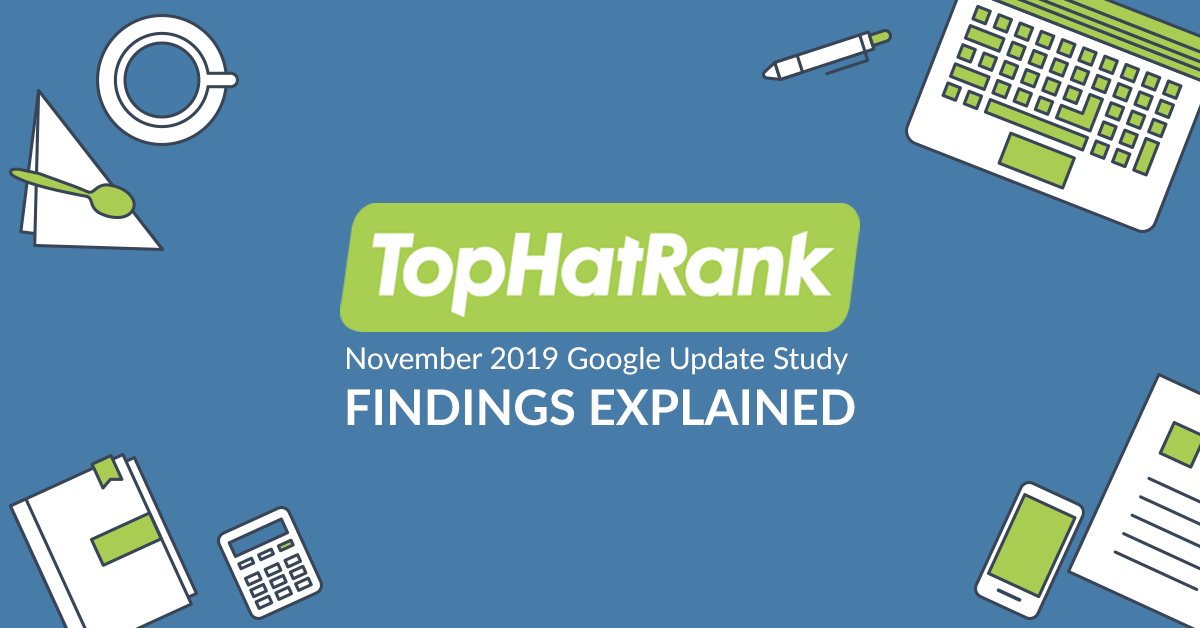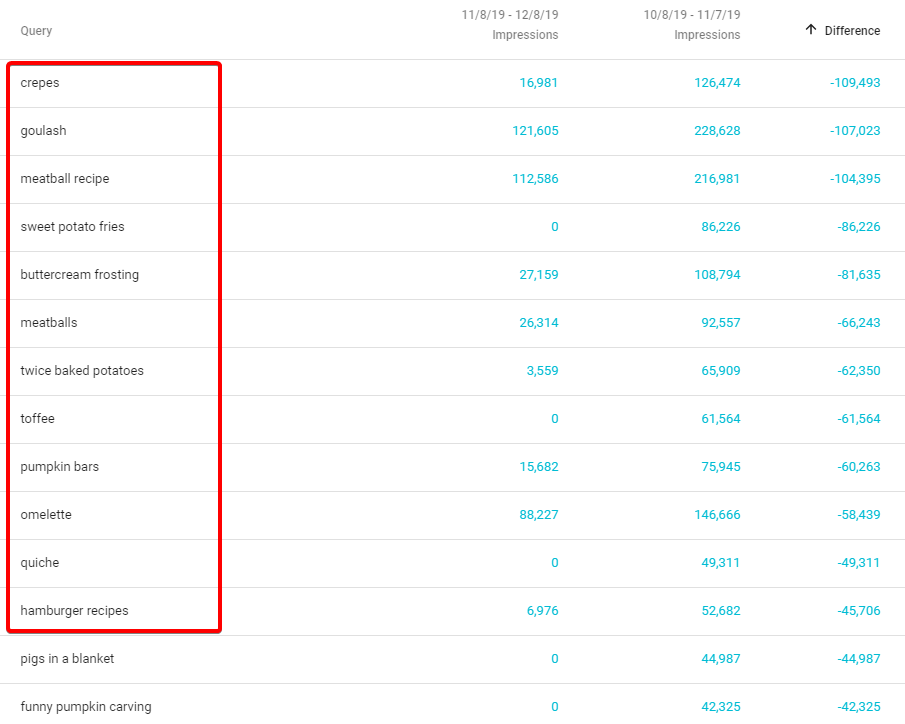Don’t Focus On Broad, Short-Tail Keywords (too much)

Before we serve the meal, let’s first set the table. For context: Top Hat Rank published a food blogger study based on data and observations from a Google algorithm update identified among the industry in November of 2019.
In the study, here’s what we found:
The most recent updates seem to be focused on adjusting results to user queries. Once your site starts to rank for generic queries, you can expect that trend to reverse; for instance, broader food-related keywords proved to be reserved for highly authoritative domains.
(page 36)
Most bloggers tend to focus on “short tail”, broad, generic terms because these queries have higher search volumes and the belief that if there is broad interest in a given topic, it can translate into readership and therefore followers.
In the food world, here’s an example of some broad food-related terms:
If you’re a blogger going after these terms, you’re in for a surprise.
Our study found most domains lost Impressions (online visibility) for generic, short-tail keywords between one to three words long.
The reason may have been due to the algorithm update where Google cleaned up the search results. Simply put: in the case where queries were too generic and the search intent was not clear, Google adjusted the results favoring larger, more well known domains since big brands serve a broad audience intent.
Think about it. If you were a walking, talking, human search engine and someone walked up to you and said, “apple.”
Most likely, your initial response back to them would be, “the company or the fruit?”
Google faces the exact same problem when a searcher only types in “meatballs” to the search bar. Based on only that information, what could the searcher be looking for?
Since large domains rank for lots of queries, Google felt it best to prioritize larger domains for these types of nondescript searches.
What We Saw
We observed the following in late 2019:
“On November 17th, the Videos and Video Carousel were moved to the top of the page. Related questions were moved to 3rd and Wikipedia dropped to 4th place. The news box remained in the middle of page 1, and the recipe landing page dropped to position 6”
What does that mean? Google had enough information at the time (at least for food websites in this vertical) to prioritize big brands, videos, and related questions.
Big brand websites that were well known occupied the top spots because Google figured that’s what most people might be looking for.
Why it’s hard (and unproductive) to rank for broad, short-tail search terms
When any site loses rankings, and therefore traffic, due to a change in the algorithm, the first thing most bloggers try to do is figure out how to regain that traffic.
But in this case, that’s a waste of time if you’re not a big domain with a reputable brand name and hundreds, if not thousands of pages that command hefty search term rankings.
Why? Big brands will win in the SERP because the search intent is unclear.
Since it’s unlikely that big brands can justify revenue in writing content for very specific searches (“tasty vegetarian meatball recipe”) this creates an opportunity for bloggers to service the search intent that’s more niche.
Your game plan: optimize your existing category pages for these broad short-tail queries so that the user can decide for her/himself which meatball recipe you’ve blogged about best fits what they’re searching for. In this way, at least your blog has a category landing page that can rank for “meatballs” but it’s not the only arrow in your quiver against the big brands.
Takeaways
For broad, generic terms, it’s best not to try to target content for those terms because major search engines (think Google), are continuously working to understand the intent behind the search so that they can provide the best results.
Let the big bakery sites rank on terms like, “banana bread.” You will be able to command a higher quality of traffic if your content is tailored to speak to someone who knows exactly what they’re searching for: “banana bread when you don’t have bananas”.
Now you can be helpful.




